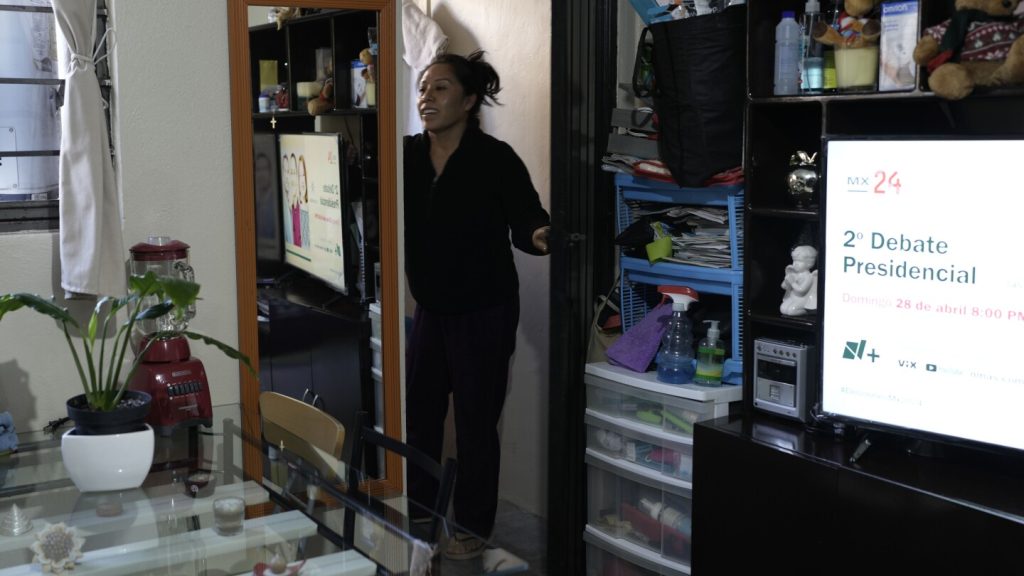Concepción Alejo, a domestic worker in Mexico City, represents the 2.5 million Mexicans, mainly women, who work in the domestic service industry. These workers play a crucial role in Mexican society, taking on household duties as more women enter the workforce. Despite recent reforms to improve conditions for domestic workers, many still face low pay, abuse, long hours, and instability in their work. The upcoming presidential election in Mexico, where two female candidates are in the lead, raises hopes for change among these workers, who feel marginalized and forgotten by the government.
Alejo’s story reflects the struggles faced by many domestic workers in Mexico. Coming from a poor family, she dropped out of school at a young age to work in the only job available to her as a lower-class woman. The demands of domestic work, combined with low pay, led her to forgo starting a family of her own. Many domestic workers live with families and work long hours without breaks, isolating them from their loved ones. This practice stems from historical class, race, and gender dynamics that continue to impact relationships with domestic workers.
On the other hand, women like Claudia Rodríguez, a single mother and business owner, rely on domestic workers to balance their professional and personal lives. Rodríguez’s journey in the IT industry was marked by challenges, including harassment and discrimination. Caregiving responsibilities often hinder women’s career advancement, leading to a gender gap in the workforce. Despite progress in promoting women’s representation in politics, the benefits have not reached working-class women like domestic workers, who face informal working conditions and low wages.
While the current government has passed legislation to grant domestic workers basic rights, enforcement remains lacking, leaving many women vulnerable to exploitation. With the upcoming presidential election, domestic workers hope for a leader who will prioritize gender issues and improve their working conditions. However, they remain skeptical of politicians and their promises, given the longstanding inequality and violence against women in Mexico. The challenges faced by workers like Alejo underscore the need for continued advocacy and action to protect their rights and improve their livelihoods.
Despite the obstacles, a growing number of women in Mexico are taking on leadership roles and advocating for women’s rights. While having female candidates in the presidential race is a step forward, the real change will come from sustained efforts to address gender inequality in all sectors of society. Workers like Alejo, who continue to navigate a precarious path in their pursuit of better conditions, embody the resilience and strength of women in the face of adversity. As Mexico prepares for a historic election, the hopes and struggles of domestic workers serve as a reminder of the ongoing fight for gender equality and justice.


